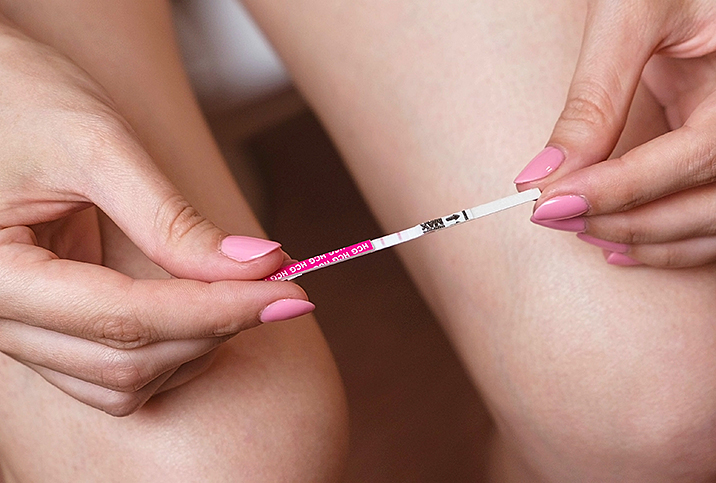How Diet May Improve Sexual Health If You Have an Autoimmune Disease

There are more than 80 medically recognized diseases characterized by an immune system malfunction. A person with one of these diseases has an immune system prone to attacking healthy parts of the human body. Collectively, these 80-plus autoimmune diseases cause problems for more than 24 million people living in the United States, according to the National Institute of Environmental Health Sciences.
As the institute noted, autoimmune disorders that attack cells, tissues and organs in the body—from lupus, multiple sclerosis and rheumatoid arthritis to rare conditions that may not be properly diagnosed for years—often have no cure and require ongoing treatment.
Medications and treatments can help people manage symptoms. In addition, relatively new research suggests dietary interventions can alleviate autoimmune disease issues in some cases. Innovative dietary approaches to treatment hold promise in terms of addressing causes of autoimmunity and assisting individuals in recovering or improving sexual function impaired by autoimmune conditions.
How autoimmunity hinders sexual function
Autoimmune diseases can adversely affect sexual function. Inflammatory bowel conditions such as Crohn's disease appear to increase the risk of erectile dysfunction (ED). Neurological issues and numbness associated with multiple sclerosis can predispose people to performance problems. Lupus patients can struggle with body image and depression in ways that negatively affect desire. And the inflammation and joint swelling caused by rheumatoid arthritis appear to substantially increase the risk of sexual dysfunction.
"It's very difficult to talk about sexual function in autoimmune disease because autoimmune diseases are very different from one another," said Daniel Araujo, M.D., Ph.D., professor of rheumatology at Pelotas Federal University and director of the Immune Center for Autoimmune Disorders in Pelotas, Brazil.
Araujo, who previously reviewed relevant literature on sexual function related to rheumatic/autoimmune diseases, also co-authored the first known study evaluating sexual function in female patients with dermatomyositis and polymyositis.
"Polymyositis is muscle inflammation," Araujo clarified when asked about the inflammatory myopathy associated with systemic autoimmune disease. "Dermatomyositis is muscle inflammation plus skin inflammation."
In his admittedly small study, published in 2016, he found major domains of female sexual function—desire, arousal, satisfaction, vaginal lubrication and orgasm—were significantly decreased in patients with the aforementioned diseases compared with control subjects.
The disease-induced muscular pain can make intercourse difficult and require the use of different sex positions, he said.
Pain associated with intercourse, also called dyspareunia, can occur with other autoimmune diseases, but different forms of autoimmunity often produce different bodily effects that can contribute to various kinds of sexual dysfunction.
"[With] rheumatoid arthritis, you have a lot of…pain in the joints and sometimes…[that] doesn't allow you to have the arousal or even the desire to have sexual intercourse," Araujo noted.
Fear of the pain associated with having sex or of pain experienced after sex can diminish desire, too, he added.
In aggressive systemic sclerosis, Araujo explained that microcirculation can be impaired. Men could have problems with penile microcirculation and fail to get the necessary arousal and erection to have intercourse, for example, he said.
In general, inflammatory autoimmune disorders—including rheumatoid arthritis, lupus and ankylosing spondylitis—produce chronic inflammation in the body that can be harmful to sexual health. Concomitant and visible swelling of joints, along with puffiness affecting body parts during what are often called "flares," contribute to libido-killing discomfort and alter physical appearances in ways that might negatively affect body image, possibly reducing arousal.
What's more, treatments for some autoimmune conditions can prove a double-edged sword, helping with symptoms while hindering sexual activity and enjoyment. For example, treatments that use corticosteroids can cause a distribution of fat in the body, Araujo said. This can make some people self-conscious about their sexual appearance, and the drugs can dysregulate hormones involved in arousal, interfering with sexual desire.
Can dietary interventions help?
No scientific evidence to date has indicated an impact of diet on sexual function in people with autoimmune diseases, Araujo explained.
"What we do know is that omega-3-rich diets seem to help with the inflammatory aspect of the disease," he added. "But we don't have a measure of their direct impact on sexual function."
With possible implications for sexual function, Valter Longo, Ph.D., professor of gerontology and biological sciences at the University of Southern California Leonard Davis School of Gerontology, has published research in recent years demonstrating the effectiveness of dietary interventions in ameliorating autoimmunity symptoms.
In a study published in Cell Reports in 2016, "A Diet Mimicking Fasting Promotes Regeneration and Reduces Autoimmunity and Multiple Sclerosis Symptoms," Longo and colleagues showed cycles involving lower intake of calories and protein designed to mimic fasting reduced the severity of MS in mice and did so with greater effectiveness than did a ketogenic diet. This is called a fasting-mimicking diet (FMD).
"Overall, these results suggest that FMD cycles reduce [experimental autoimmune encephalomyelitis] disease severity in part by reducing inflammation and preventing demyelination and axonal damage," the researchers wrote.
Longo said several autoimmune-related studies in mice involving fasting or fasting-like dietary interventions have rendered promising results.
"The starvation condition [is] now causing a reprogramming of the blood environment, including reprogramming some peripheral cells," Longo said before alluding to what goes on with bone marrow. "They get reprogrammed, and they get taken out again and brought to the peripheral systems."
The process, as he described it, seems to reset the immune system.
"So what's happening is that there's a specific killing of autoimmune cells, and then activation of hematopoietic stem cells, and then generation of new, functional and no longer autoimmune cells," Longo said.
In a 2017 review article that he co-authored with In Young Choi and Changhan Lee, Longo and his colleagues referenced a trial involving 53 rheumatoid arthritis patients randomly assigned to either a control group or a group that fasted for seven to 10 days who then consumed a plant-based diet for three and a half months.
Markers of inflammation and disease severity—like C-reactive protein and erythrocyte sedimentation rate—decreased in the experimental cohort, and those subjects experienced fewer swollen joints, less morning stiffness and decreased pain. Choi, Lee and Longo highlighted a small study completed by 20 rheumatoid arthritis patients that showed subjects had less pain and improved capacity for bodily function at the end of a trial involving a seven- to 10-day fast followed by three to four months of a vegan diet.
Choi, Lee and Longo concluded: "We are only beginning to understand the relationship between nutrients, fasting and autoimmune disorders; the dietary treatment of MS and other autoimmune diseases has high potential, since it may stimulate and take advantage of the ability of the organism to repair and replace its damaged cells without interfering with the function of normal cells and systems."
The reviewers also acknowledged some forms of caloric restriction can be ineffective in reducing disease and improving health. Dietary composition and protein content could partially explain why.
In his book, "The Longevity Diet," Longo argues for long-term, minimal-but-adequate protein consumption—prior to age 65—and primarily plant-based, pescetarian eating supplemented with a calorie-restricted, low-sugar and low-protein fasting-mimicking diet protocol several times per year, depending on health.
In the book, he references another study he co-conducted, published in 2017 in Science Translational Medicine, which involved 100 participants and showed three cycles of five-day FMD protocols improved health markers such as blood pressure, fasting glucose and C-reactive protein without adverse effects.
As explained in "The Longevity Diet," the fasting-mimicking diet can augment health and, in some cases, help with autoimmune diseases because it promotes autophagy (self-eating of parts of the cell), replaces damaged cell components with newly generated functional ones, kills damaged cells in many organs and systems, replaces those extinguished cells with newly regenerated cells from activated stem cells, and shifts the body into an abdominal/visceral fat-burning mode, which continues after returning to a normal diet, probably due to epigenetic changes, described as modifications of the DNA and proteins that bind DNA.
Included in the chapter on "FMD and Nutrition in the Prevention and Treatment of Inflammatory and Autoimmune Diseases," Longo references some of the aforementioned work as well as mice studies showing the FMD reversed autoimmunity and turned on stem cell-similar progenitor cells to prove what he calls "rejuvenation from within." In his view, the FMD "is particularly effective in killing off old and damaged immune cells that have lost the ability to distinguish between the cells of its own body and invading organisms such as bacteria and viruses."
With refeeding after fasting or following an FMD cycle, there's a new opportunity to reconstruct or partially rebuild what's been broken down, Longo said.
"So, for example, if you look at the immune white blood cells, within seven days, they go down about 20 percent during fasting," he said. "But then they come back to normal. So what happened between these two moments? So lowering and going back to normal…we activated derived stem cells that are giving rise now to new white blood cells."
Regarding sexual health and function, he said hormones such as testosterone and estrogen need to be in fairly normal ranges. Calorie restriction can disrupt hormones, which is why there's no reason to resort to extreme diets, he added.
"The longevity diet is not an extreme diet," Longo noted.
Under the supervision of a doctor, and preferably as part of a clinical trial, a person trying to treat their autoimmune disease can alternate the longevity diet with a monthly five-day FMD or a seven-day FMD every other month, Longo wrote in his book.
Although it appears too early to make definitive claims, the research Longo and others are doing suggests dietary interventions might indeed help mitigate autoimmune issues, including those known to diminish sexual health and function.
"We're trying to strategize against the disease so that the patient is disease-free and the patient is not hurt by it," he said.


















